CONTINGENCY OPERATING LOCATION Q-WEST, Iraq -Local Iraqi leaders met with the 16th Sustainment Brigade deputy commander and the Q-West mayor to discuss water policy and enforcement at Contingency Operating Location Q-West, Iraq Aug.15.
Mukhtars, or leaders, from five villages, along with representatives from the Iraqi Army, Iraqi Police and local government met in the base mayor's conference room and hammered out an agreement in which Iraqis will take responsibility for enforcing the share-the-water policy, which guarantees water to Coalition forces as well as surrounding communities.
"Our goal for this meeting was to get Iraqi authorities to commit to enforcing the long-standing water-sharing policy," said Lt. Col. William B. Smith, Jr., the Q-West Mayor with the 2nd Battalion, 198th Combined Arms, from the Mississippi Army National Guard.
Smith, a native of Hattiesburg, Miss., said he was encouraged by the meeting.
"We received verbal commitments from all the key leaders and will wait to see what happens," said Smith.
Water availability is understandably a significant issue in this desert country.
Iraq is suffering its fourth consecutive year of drought and faces another low harvest. The "shamal," a northwesterly wind descending from the mountains bordering Turkey, has been especially severe this summer, flooding the country with oceans of dust that linger for days.
Iraq relies heavily on the two great rivers of ancient Mesopotamia-the Euphrates, which meanders from Turkey through Syria, and the Tigris, which flows south from Turkey-but river levels have dropped over the past years, partly due to hydroelectric dams in Turkey.
The mayor cell water team operates and maintains the Al-Qayyarah pump house at the Tigris River, which provides water to many communities in the province as well as to Q-West. Two pipelines pull water from the site, a 16-inch line for Q-West and a 12-inch line for the city of Al-Qayyarah and surrounding communities.
During the last month, Q-West received roughly one one-hundredth of the water it needed, said Capt. John E. Satterfield, director of public works with the 2-198th CAB and a Midway, Ga., native.
"To sustain operations, Q-West requires less than one-tenth of the water pumped daily when the pump house is operating at normal capacity," said Satterfield. "The rest belongs to the Iraqis."
The share-the-water agreement stipulates local Iraqis may draw from the 16-inch pipeline as much water as they need from 6 a.m. to 6 p.m., after which they must close their taps, allowing water to flow unhindered to Q-West from 6 p.m. to 6 a.m. Furthermore, the agreement limits the size of taps to one inch in diameter.
Historically, during the hottest months - May to September - water delivered from the pipeline decreases dramatically because of increased demand from agricultural activity and day-to-day life support.
In spite of that, there is conspicuous consumption of water in Ninawa Province. During a recent leader's reconnaissance, Smith observed lush gardens, neighborhoods in Qayyarah where tall sunflowers towered amid waist-high grass. Members of the 2-198th CAB found wheat fields watered by boom irrigation, locals washing cars at high noon and garden hoses spilling water that barely puddled before evaporating.
These oases thrive-many of them miles from the Tigris River-on water siphoned, often without permission, from taps in the 16-inch pipeline.
The Qayyarah officials and the village mukhtars discussed who was responsible for the situation.
"We have explained to the people a thousand times that they can take as much as they need during the day, but not to take the water at night," said Qayyarah Mayor Salih Nasa, through a translator.
When Salih asked why Coalition forces no longer prevent infractions, Smith reminded him the role of Coalition forces has changed since the January 2009 Security Agreement.
"This is an Iraqi civil issue and Iraqis must enforce their own policies," said Smith. "I want to make this very clear - we are going to leave Iraq. Our intent is to leave this base in good condition for the Iraqi Army and Air Force to use. This is your country, your base."
"The Iraqi Army supports the share-the-water policy, but there must be consequences for violating it," said Iraqi Army Lt. Col. Khalid Subhi Muhammed, a civil affairs officer with the 7th Brigade. "Here is what we must do, and we must do it through the Iraqi legal system, not through the Coalition forces."
Muhammed laid out a simple, direct plan: warn all the people that if they do not abide by the share-the-water policy, they will be punished. After a warning, fine and jail everyone who violates the policy.
Gen. Khalil Hassan Aluk, the Al-Qayyarah police chief, agreed to the plan.
"I will speak with the muktars and shaykhs of every village, and they will speak to the people and tell them they must remove the illegal taps and abide by policy," said Aluk. "I will also send a message to all the imams."
Lt. Col. Eric Fleming, deputy commander, 16th Sust. Bde., emphasized the importance of an Iraqi-led solution to the issue.
"The most significant outcome of this meeting was the empowering of the local government officials," said Fleming. "In the past, they leaned on Coalition forces to be the heavy hand and enforce Iraqi law."
Fleming said the meeting was an important milestone in the transition of the region.
"The Iraqis agreed to conduct patrols on the pipeline and enforce Iraqi law by arresting those that illegally tap the line," said Fleming. "The mayor of Al-Qayyarah stated that he had the power to impose fines and that he would do so if an Iraqi judge found them guilty of breaking the law. This is a major step forward in the local population taking responsibility for their own country. We did not have this a year ago."
Dr. Muhammed Ismail Ahmed, a liaison for more than 50 villages in the province, said he agreed with Fleming. A general practitioner with a medical degree from the University of Mosul, Ahmed said he sees the issue of water-policy enforcement as a challenge to the legitimacy of the local Iraqi government.
"The people are asking how their leaders will deal with this," said Ahmed. "There must be follow-through on the decisions made during the meeting."
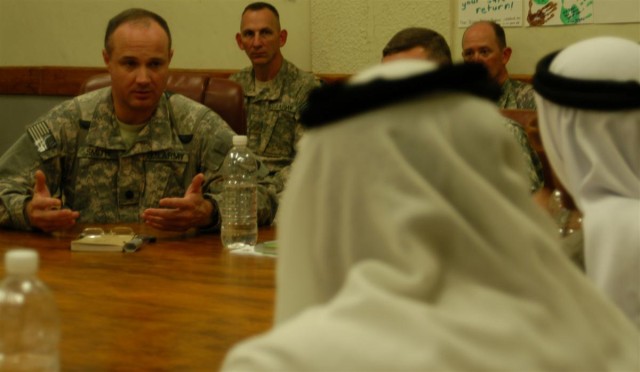
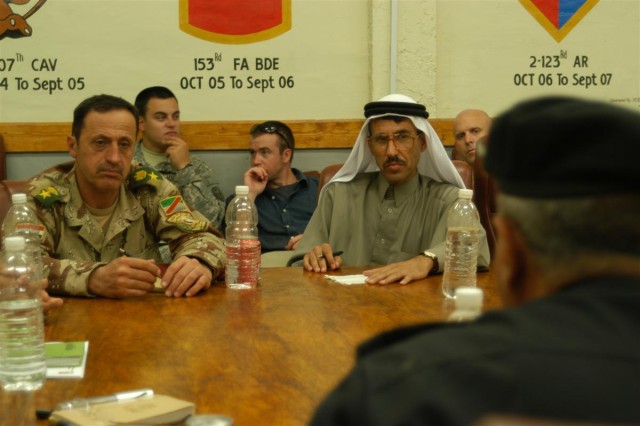
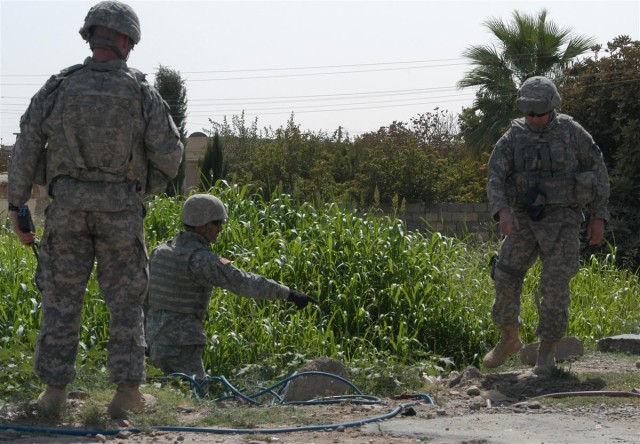
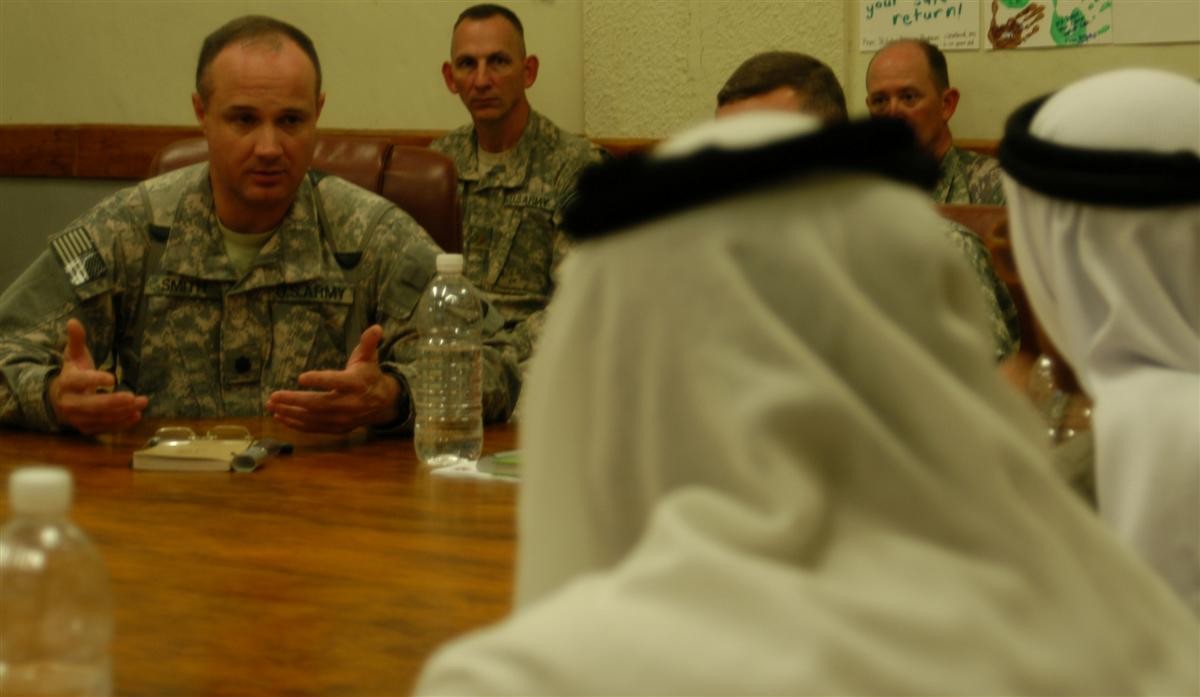
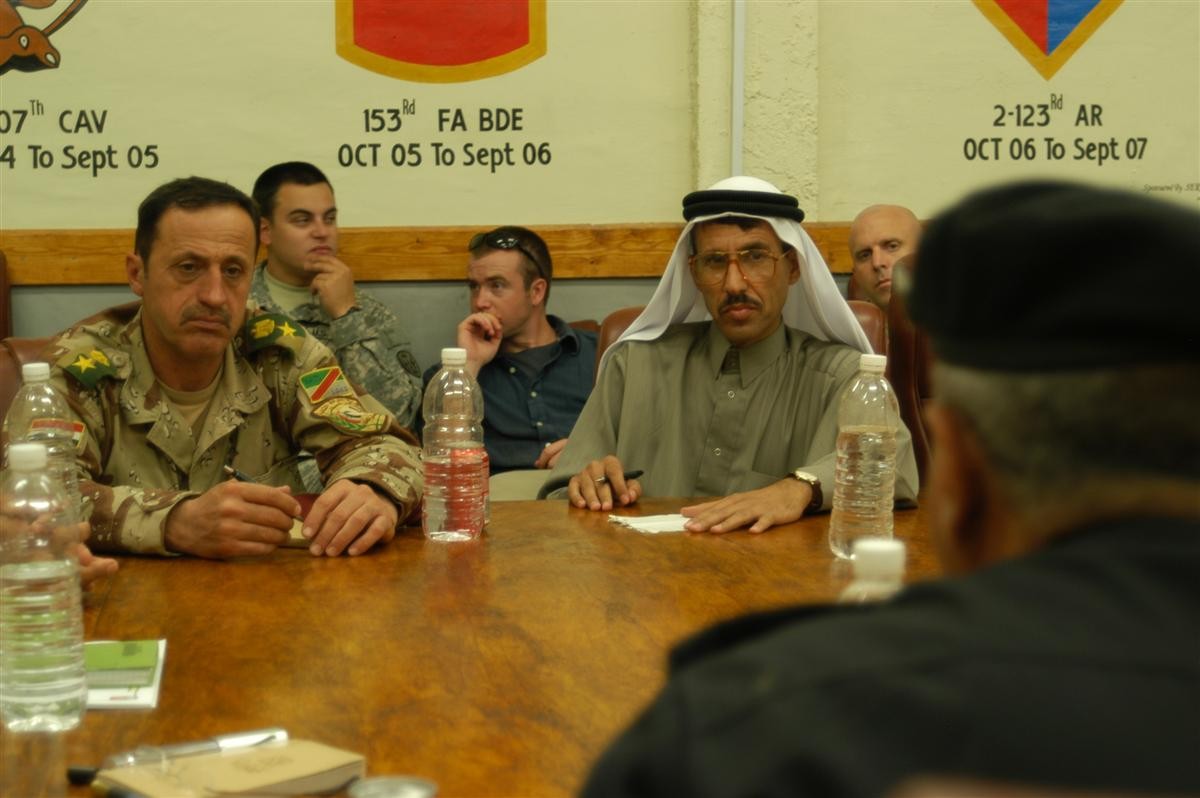
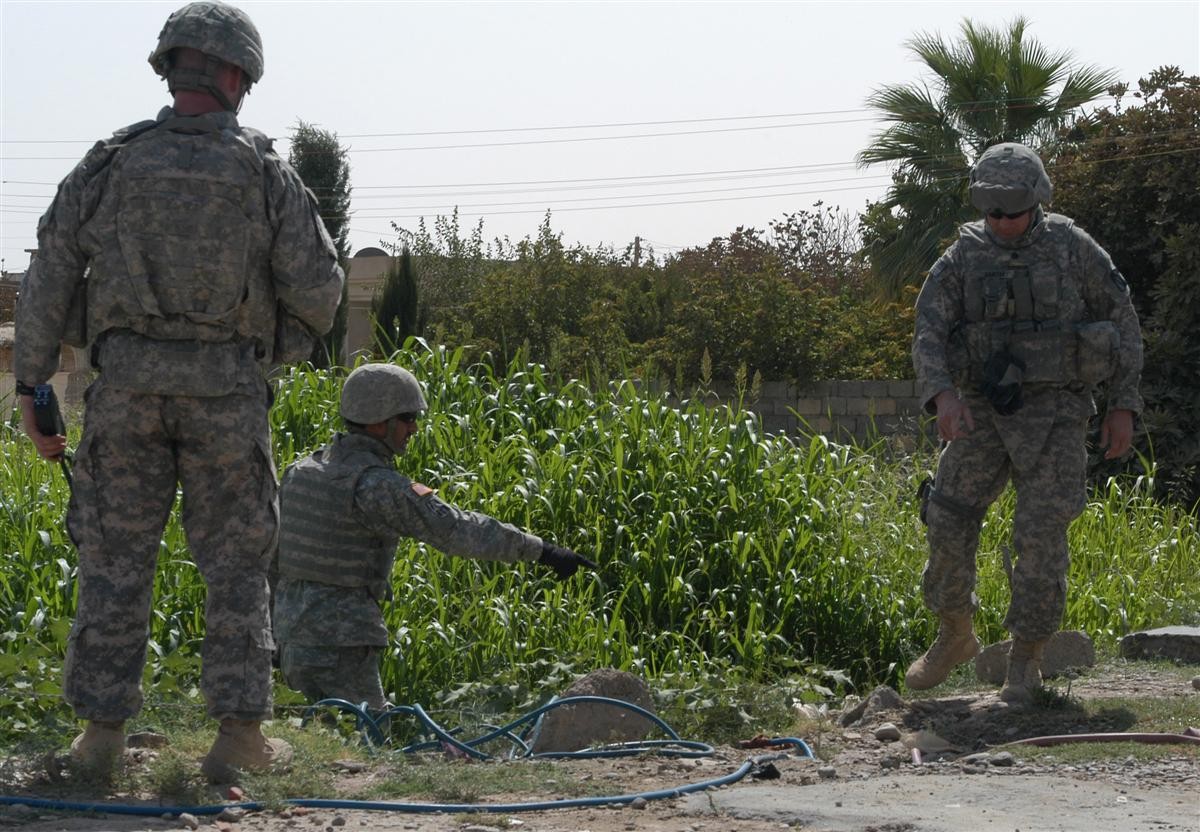
Social Sharing